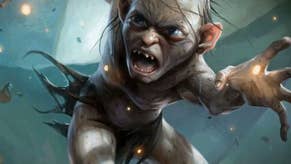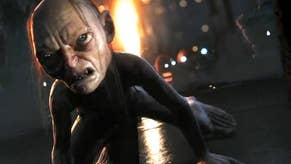Guardians of Middle-earth review
When two towers just aren't enough.
There was no getting around it. As a multiplayer online battle arena - or MOBA, as League of Legends and its ilk like to be known - based on The Lord of the Rings, Guardians of Middle-earth was always going to have Gandalf fighting Galadriel. A buffed Gollum killing Legolas. Some pro hobbit from the mystical land of Detroit killing the Witch-king of Angmar, over and over again. That's chemical nerdicide potent enough to make me, just a casual fan of the films, feel a bit like a child being touched inappropriately by an elderly relative.
On the other hand, Guardians of Middle-earth certainly captures Tolkien's legendary pacing like none of the action games before it. Characters trudge heavily around the battleground, their pace pedestrian enough to make just the thought of hiking around to upgrade your team's towers fill you with Mordor's own dread.
But it's all for a good cause. Maybe you've never played a MOBA, so let's take it from the top. The translation of the MOBA to consoles was always going to be a little tricky. In the classic sense, with League of Legends and Dota, it works like this:
Two teams of five players, everyone controlling a unique hero, face off in a top-down map divided into three lanes. Your noble goal is to destroy the inexplicable wibbly structure in one another's bases. Each team's base spawns waves of soldiers which battle one another beneath the genre's destructible towers, with players having to balance both map control (gradually destroying the towers leading up to the enemy base) and levelling their characters up.

Simple. Except not, because as yet, the genre also defines itself both with a frown-fashioning complexity and the alien precision of a mouse and keyboard. In other words, we're still waiting on our GoldenEye that cracks the console market wide open.
Earlier this year we had Awesomenauts, experimenting awesomely by breaking all the rules, snapping apart MOBA conventions to create a frenetic, nuanced, multiplayer platformer. Guardians of Middle-earth is noteworthy for journeying in the opposite direction. In an attempt to retain more genetic material from its elders, it tones down both what players of Dota 2 or League of Legends have come to expect, but also what the game expects of you.
Here, then, is the game's great strength: like Awesomenauts, Guardians is playable on a gamepad, on your sofa, without the water wings of a wiki - but it also manages to be instantly familiar. MOBA fans will immediately be able to wedge themselves into the cryptic business of jungling (lurking between the game's lanes, leaping from bushes for a shifty kill) or roving in groups to overwhelm lone players.
But thanks to two compromises, everyone else can just get started. One: Guardians of Middle-earth takes the equipment-purchasing subgame of MOBAs and packs it away into a series of unlocks between matches, as popularised by Call of Duty. No more teams screaming at you because you didn't buy something - or worse, YOU DID! You monster! You bought the Hairpiece of the Grave before you were meant to! You've ruined the game!
"Guardians is playable on a gamepad, on your sofa, without the water wings of a wiki - but it also manages to be instantly familiar to MOBA players."
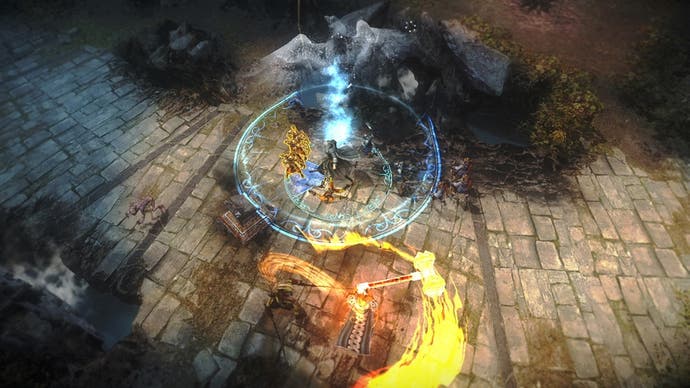
So, no equipment purchasing mid-match. The second compromise is that pace. When I first started playing Guardians, it was like all the heroes had been at Gandalf's pipe-weed. They move slowly, attack slowly, and purchase upgrades for your towers pretttyyyy slowwwlyyy. Tell you what, though - they do die quickly.
Where Guardians succeeds is in that frightening MOBA emphasis on the map-wide positioning of your character, on the tactics that stretch the match out like so much taffy, where fights can last minutes and your attention is locked in by an inescapable tension.
Let's say you're paying Gollum, a "Striker" class hero who excels at assassination. You don't get those kills from flinging yourself into the fray. You skulk around the map, appearing behind lone enemy heroes, chasing them down, peering forever into your precious minimap. The game you're playing is in using your Coward power to retreat whole seconds before the enemy launch their own counter-offensive. Think you can handle that?
Or maybe Hildifons the hobbit is your type, deploying walls, traps and bombs to shunt your soldiers forward. No skulking for you, but again, pushing a lane too greedily and too deep will see you much too far in enemy territory, where a Gollum type can strangle the second breakfast out of you.
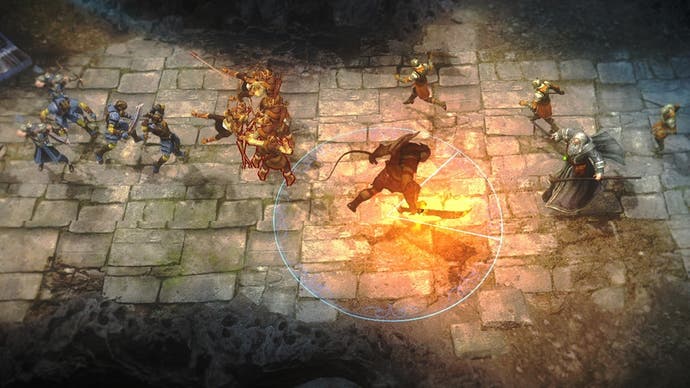
Heightening this MOBA's (and any MOBA's) appeal is that rich thrill of being only a part of something bigger. Again, imagine you're Gollum. Your gank's gone wrong, and now you're loping as fast as your warped legs can carry you back home with two enemy heroes in pursuit.
You're buying Guardians of Middle-earth for the moment that Eowyn comes running out from your base to heal you moments before you're snagged with a ranged attack, or perhaps a friendly Gandalf comes bursting from the bushes like a sex offender to shake his staff at your pursuers, scaring them away.
The surreal nature of the Guardians' warfare aside (the heroes all stand a good three feet taller than your soldiers, is another thing), these last-minute rescues and courageous charges are moments of high drama and heroism that emerge routinely from MOBAs. Slow a game down as developer Monolith has here, and you nudge reflexes to one side to create a game of cunning and patience. Which brings us to the hearty rush of the gank.
Again, in Guardians, as in a lot of MOBAs, the reduction of an enemy's health bar can be compared to tenderising meat. When the going gets tough, the tough will basically run away, which means getting a kill is a tricky process involving timing. Which only makes getting kills all the sweeter. You didn't just out-play someone, you out-thought them - and you just earned the gratitude of your entire team. But we're not finished! You're also immediately gifted with a fat deluge of experience points. POP! You levelled up!
And with that slightly reduced pace, you'll find the time for a wry smile. Perhaps you'll giggle outrageously. And then you'll be locked right back into this dangerous game.
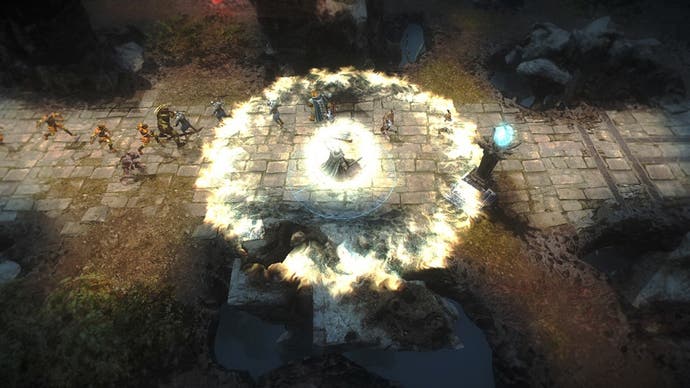
But you've probably skipped down to that score. Where does it come from, if this game is such a succesful port of MOBA gameplay to consoles?
Guardians of Middle-earth never really falls down, per se. Like its heroes, it's forever striding purposefully onwards. You'll kill, level up, unlock relics, potions, other Guardians and more, and you'll probably step contentedly into the next match, either with a refreshingly different hero or continuing to perfect the old one. But it disappoints in the same reserved manner - offering plenty of the grit of the genre, but none of the glitter.
I drifted through Guardians in a haze, enjoying myself with no compunction to come back. I was unlocking stuff, sure, and learning which Guardians could go toe-to-toe, but I wasn't being rewarded by surprises or spectacular plays. I wasn't thumbing my way through a book of colourful heroes, but navigating the same ones like an employee seeing the same faces in a beige office.
I can't stand Guardians' solitary battleground, a flat, dun-coloured plausibility that at once feels like a misguided interpretation of The Lord of the Rings' actually-quite-varied world and the solitary concession to the license outside of the characters and main menu, which promises much in the form of Bilbo's map at Bag End.
Here's a game that feels propped up by its license rather than in love with it. It's difficult to imagine how Guardians of Middle-earth would define itself without that signature art and Gandalf shouting "You shall not pass!" on a regular basis. At ents.
But while it doesn't dazzle, this game does offer something for everyone. For salty MOBA fans, here's the genre you love in a new, bantamweight shape. For anyone new to the genre, here's an easy chance to see what the fuss is about.
These games are here to stay. Might as well meet the new neighbours.


![MOBA Guardians of Middle-Earth "isn't necessarily a game for [LOTR] purists"](https://assetsio.gnwcdn.com/450-x3dhrk.jpg?width=291&height=164&fit=crop&quality=70&format=jpg&auto=webp)
